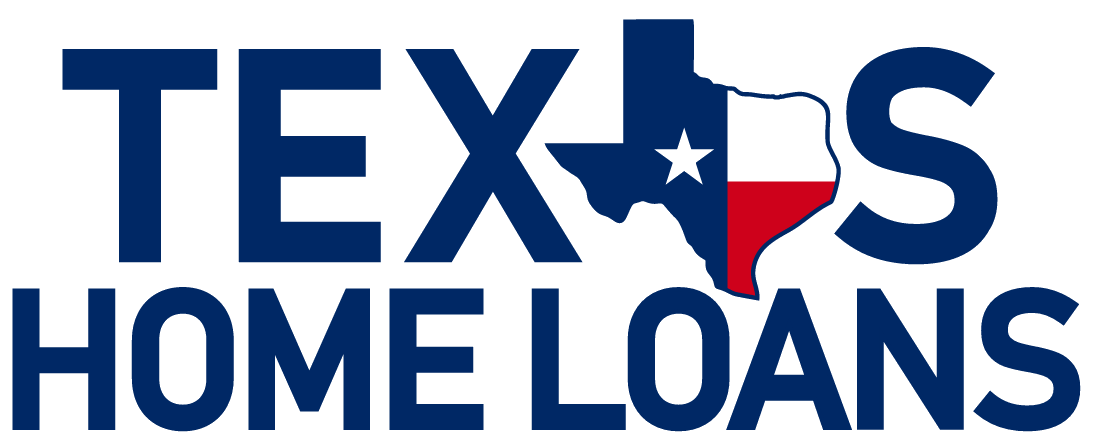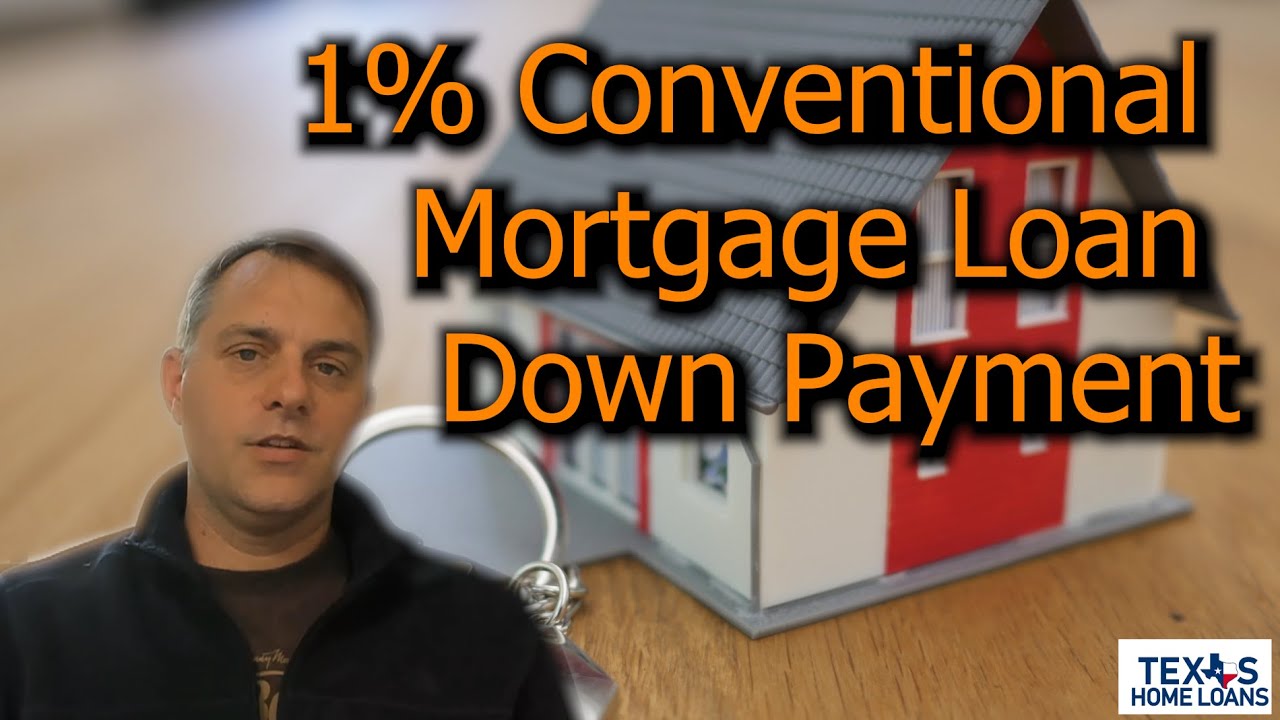Are you a Texan looking to buy your dream home? Are you confused about the…
Conventional Loans in Texas
Navigating traditional home loans in Texas can be exciting yet complex. Knowing available options is crucial. Credit scores and debt ratios are essential. Understanding conventional loans versus government-backed ones can help clarify your homeownership journey in Texas. Get ready to explore traditional loan details in the Lone Star State.

Understanding Conventional Loans in Texas
Conventional loans in Texas refer to mortgage loans not backed by the government. These loans are offered by private lenders like banks, credit unions, and mortgage companies. They typically require higher credit scores and larger down payments compared to government-backed loans. Conventional loans provide more flexibility in terms of loan amounts and property types. Understanding the nuances of conventional loans is crucial for Texas homebuyers, as they play a significant role in the state’s real estate market dynamics.
Conventional Loans
Conventional loans refer to mortgages not backed by government agencies like FHA, VA, or USDA. Normally, they have stricter requirements concerning credit scores, loan amounts, and debt-to-income ratios. Borrowers often opt for conventional loans when they can meet the standard criteria. Private mortgage insurance may be necessary for down payments below 20%. Understanding these loans is crucial for making informed home financing decisions.
Conventional vs. Government-Backed Loans
Federal Housing Administration (FHA) and Department of Veterans Affairs (VA) loans are government-backed, offering lower credit score and down payment requirements compared to conventional loans. With FHA loans, borrowers pay mortgage insurance premiums throughout the loan term, while VA loans do not require mortgage insurance but may have funding fees. Conventional loans, not insured by government agencies, typically demand higher credit scores and down payments but may offer more competitive interest rates in certain market conditions.
Eligibility Criteria for Conventional Loans in Texas
To qualify for conventional loans in Texas, applicants need a good credit score, typically at least 620. Down payments range from 3% to 20% of the home’s purchase price. Debt-to-income ratio should not exceed 43%. Borrowers with higher credit scores may enjoy lower interest rates and down payments. Lenders often look for stable income and may require bank statements. Meeting these criteria increases the chances of approval for a conventional loan in Texas.
Credit Score Requirements
For conventional loans in Texas, credit score requirements play a crucial role in determining eligibility. Lenders typically look for higher credit scores to secure favorable terms. A good credit score demonstrates financial responsibility, increasing the likelihood of loan approval. While specific score requirements vary, a higher credit score can lead to lower interest rates and better loan terms. It’s essential to maintain a healthy credit profile to qualify for a conventional loan in Texas. Understanding and improving your credit score can positively impact your home buying journey.
Down Payment Expectations
For conventional loans in Texas, down payment expectations typically range from 3% to 20% of the home’s purchase price. The amount required depends on factors such as credit score, loan amount, and property type. Higher credit scores often enable lower down payments, while lower credit scores may necessitate a higher initial payment. Understanding these expectations can help borrowers prepare financially for homeownership and navigate the loan application process more confidently.
Debt-to-Income Ratio Guidelines
Your debt-to-income ratio is a crucial factor in qualifying for a conventional loan. Lenders typically prefer a DTI ratio below 43%, but some allow up to 50%. This ratio compares your monthly debt payments to your gross monthly income. Lower DTI ratios indicate better financial health and increase your chances of loan approval. To calculate your DTI, add up all your monthly debts and divide by your gross monthly income. Keeping this ratio in check is vital for a successful loan application process.
Types of Conventional Loans Offered by Texas Home Loans
Conventional loans offered by Texas home loans include Fixed-Rate Mortgages, and Jumbo Loans for high-value properties. Fixed-rate mortgages provide stable interest rates, while adjustable-rate mortgages offer initial lower rates that later adjust. Jumbo loans cater to properties exceeding conventional loan limits. Each option suits different financial situations, making it essential to assess individual needs when choosing the right loan type.
Fixed-Rate Mortgages Explained
Fixed-rate mortgages are a popular choice in Texas due to their predictability. With interest rates remaining constant throughout the loan term, homeowners can budget more effectively. These mortgages are often offered in 15 or 30-year terms, providing flexibility for borrowers. Understanding the nuances of fixed-rate mortgages can help Texas home buyers make informed decisions when selecting their preferred loan option.
Jumbo Loans for High-Value Properties
Are you eyeing a luxurious property in Texas? Jumbo loans cater to high-value homes exceeding conventional loan limits, granting financial flexibility. Texas homebuyers seeking properties beyond conforming loan boundaries find jumbo loans from private lenders preferable. With higher loan amounts, jumbo loans are ideal for affluent buyers interested in opulent real estate ventures. Understanding the nuances between these large loans and standard mortgages is crucial when venturing into upscale property acquisitions. Benefit from tailored jumbo loan solutions for your dream Texas estate.
Why Choose a Conventional Loan for Your Texas Home?
When purchasing a home in Texas, opting for a conventional loan offers flexibility and competitive terms. Unlike government-backed loans, conventional loans may suit your needs better with varied eligibility criteria and potentially lower costs.
Benefits for First-Time Home Buyers
For first-time home buyers, conventional loans offer flexibility and competitive interest rates. Unlike government-backed loans, conventional loans allow for a lower down payment if private mortgage insurance is obtained. This can be an appealing option for those who may not qualify for FHA or VA loans. Additionally, conventional loans provide more freedom in terms of property type and purchase price. By meeting the credit score and income requirements, first-time buyers can benefit from the stability of conventional loans, especially when considering long-term affordability and equity growth.
Investment Property and Second Home Financing
When considering investment property or second home financing through conventional loan options, it’s essential to understand that lenders typically have stricter requirements compared to primary residence loans. For investment properties, expect higher down payment demands, due to the increased risk involved. Lenders also often require a higher credit score for these types of loans. Some key factors that lenders consider include the property’s potential rental income, your existing debts, and your overall financial stability. Additionally, interest rates for investment properties tend to be slightly higher. It’s advisable to consult with mortgage lenders experienced in investment property financing to navigate the process more effectively and secure favorable loan terms.
Lower Private Mortgage Insurance (PMI) Costs
Private Mortgage Insurance (PMI) costs can be lowered by increasing your down payment to reduce the loan-to-value ratio. Lenders may offer better PMI rates for lower-risk loans, so improving your credit score can also lead to decreased PMI expenses. Additionally, refinancing your conventional loan once you have built sufficient equity in your home can eliminate the need for PMI altogether. Exploring different mortgage lenders and their PMI policies can help you find competitive rates. Understanding how PMI costs are calculated and being proactive in managing them can result in substantial savings over the life of your loan.
Preparing for the Conventional Loan Application Process
Before diving into the conventional loan application process, gather essential documents like bank statements and proof of stable income. Evaluate your credit report as a higher credit score can lead to lower interest rates. Understand the difference between FHA, VA loans, and conventional loan requirements to determine the best fit for your needs. Consider private mortgage insurance if your down payment is less than 20% to mitigate risk. Familiarize yourself with mortgage calculators to estimate monthly payments accurately. Research current market conditions to anticipate competitive interest rates. By preparing thoroughly, you streamline the application process and increase your chances of securing favorable loan terms.
Documentation Needed for Approval
In order to secure approval for a conventional loan in Texas, several documents are typically required. These include bank statements to verify assets, proof of a stable income through pay stubs or tax returns, and a credit report to assess your financial history. Lenders may also request information on any outstanding loans or debts you have. Additionally, details about the property you intend to purchase, such as the purchase price and its value, will be needed for evaluation. Providing accurate and complete documentation is crucial for a smooth approval process and to demonstrate your financial stability to the lender.
Understanding the Loan Estimate and Closing Disclosure
Before finalizing a conventional loan in Texas, comprehending the Loan Estimate and Closing Disclosure is crucial. The Loan Estimate provides a detailed summary of the loan terms, including interest rates, monthly payments, and closing costs. It helps borrowers compare offers from different lenders effectively. On the other hand, the Closing Disclosure outlines the final loan terms and closing costs before the loan is settled. It is imperative for borrowers to review these documents carefully to ensure accuracy and avoid any surprises at closing. Understanding these documents ensures transparency in the borrowing process, empowering borrowers to make informed decisions regarding their conventional loan in Texas.
Tips for a Smooth Loan Application Experience
When applying for a conventional loan in Texas, follow these tips for a seamless experience. Firstly, ensure your credit report is accurate and up-to-date to meet the minimum credit score requirements. Organize your financial documents, including bank statements and proof of stable income, to streamline the process. Understand the loan estimate and closing disclosure to avoid any surprises. Communicate effectively with your mortgage lender, asking about any uncertainties regarding the terms or fees. Be proactive in addressing any potential issues that may arise during the application process. By following these tips, you can navigate the loan application smoothly and increase your chances of approval.
Navigating Interest Rates and Fees for Conventional Loans
Navigating interest rates and fees for conventional loans requires a keen understanding of market conditions and loan terms. To secure competitive interest rates, borrowers should maintain a good credit score and stable income. Lenders may offer lower rates for higher credit scores, ultimately lowering the overall cost of the loan. Additionally, closing costs can significantly impact the total expense of a mortgage. By negotiating with lenders and exploring different options, borrowers can potentially lower these costs. Understanding the details of interest rates and fees is crucial for optimizing the financial aspect of a conventional loan.
Current Trends in Mortgage Rates in Texas
Mortgage rates in Texas fluctuate based on various factors like market conditions and economic indicators. Currently, Texas is experiencing competitive interest rates for conventional loans, making it an opportune time for potential homebuyers to secure favorable financing. These rates are influenced by the broader economic landscape, including the Federal Reserve’s policies and market demand. It’s essential for borrowers to stay updated on these trends to make informed decisions regarding their mortgage options. By monitoring these trends closely, individuals can capitalize on lower interest rates, ultimately leading to substantial savings over the life of the loan. Keep abreast of the latest developments to take advantage of the best rates available in the market.
How to Get the Best Loan Terms
To secure the best loan terms for a conventional loan in Texas, focus on improving your credit score. A higher credit score often leads to lower interest rates and more favorable loan terms. Additionally, consider increasing your down payment, as this can also result in better terms. Shopping around and comparing offers from multiple lenders can help you find competitive interest rates and favorable terms. Keep an eye on market conditions to lock in rates at the right time. Demonstrating stable income and a low debt-to-income ratio can also work in your favor when negotiating loan terms. Lastly, consider seeking guidance from a mortgage broker to explore all available options and secure the most advantageous terms.
Closing Costs and How to Lower Them
Closing costs are a significant aspect of obtaining a conventional loan. Understanding how to lower them can save you money in the long run. By negotiating with the lender or requesting lender credits, you may be able to reduce some of these costs. Additionally, some fees are negotiable, so it’s important to review the Loan Estimate carefully. Shopping around for different mortgage lenders and comparing their closing cost fees can also help in finding the best deal. Lowering your closing costs can contribute to a more cost-effective home buying process, allowing you to allocate your finances more efficiently. Utilizing these strategies may lead to a smoother and more affordable loan closing experience.
Frequently Asked Questions
What Makes Conventional Loans Different from VA Loans?
The main difference between conventional loans and VA loans is that VA loans are backed by the Department of Veterans Affairs, while conventional loans are not. VA loans offer unique benefits for eligible veterans, such as no down payment requirement and no private mortgage insurance (PMI) requirement.
How do conventional loans differ from other types of home loans available in Texas?
Conventional loans differ from other types of home loans, such as USDA loans and FHA loans, in that they are not guaranteed or insured by government agencies like the USDA or the Federal Housing Administration (FHA). Conventional loans have stricter qualification requirements and may require a higher down payment or private mortgage insurance.
Conclusion
Conventional home loans in Texas provide different options for buyers. It’s essential to understand conventional versus government loans, eligibility, and types when getting a mortgage. Conventional loans have advantages like lower insurance costs, suitable terms, ideal for new buyers and investors. To apply smoothly, gather correct documents, know fees, monitor rates, and costs. This guide gives crucial information for buying a home using conventional loans in Texas.





